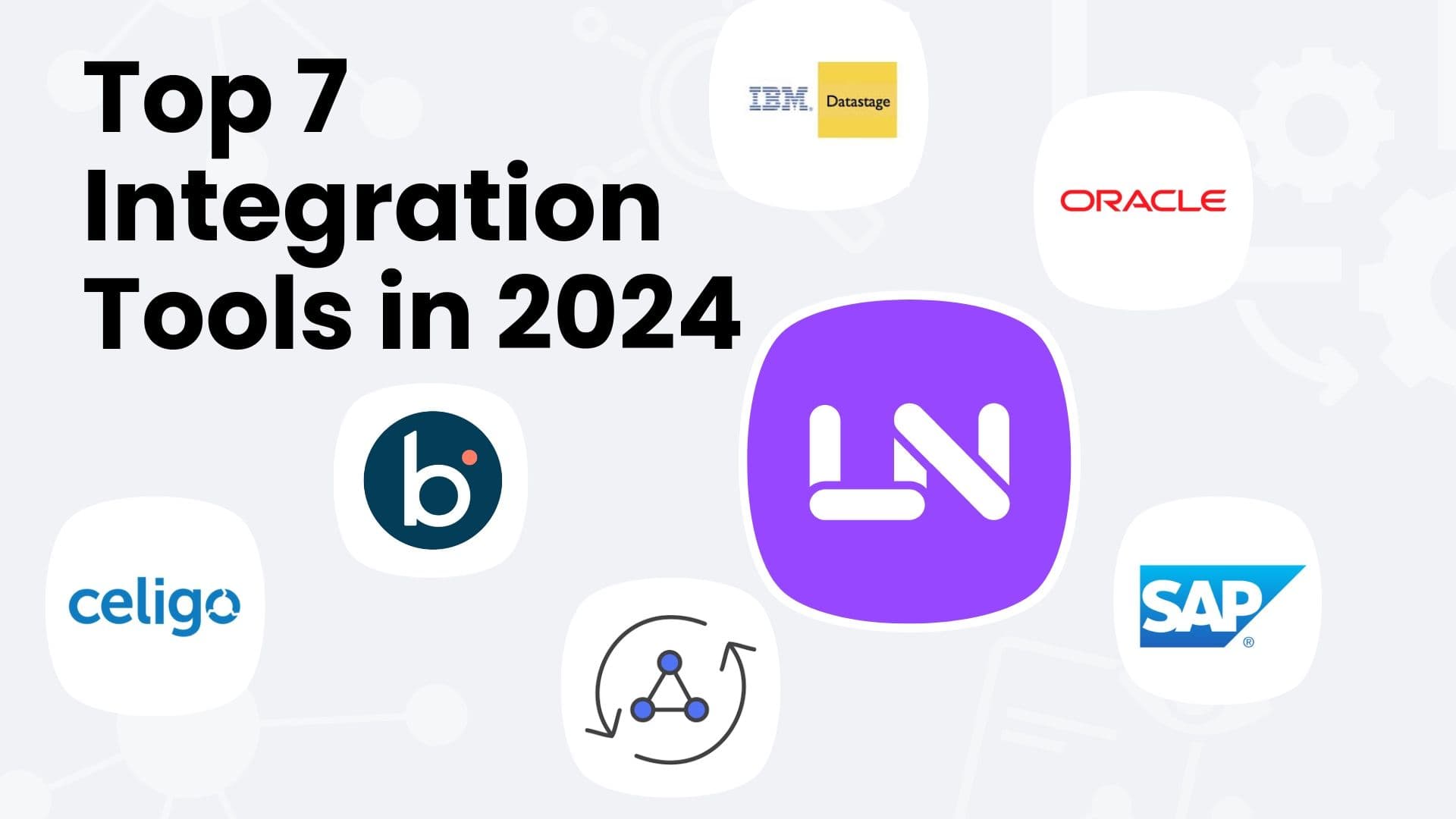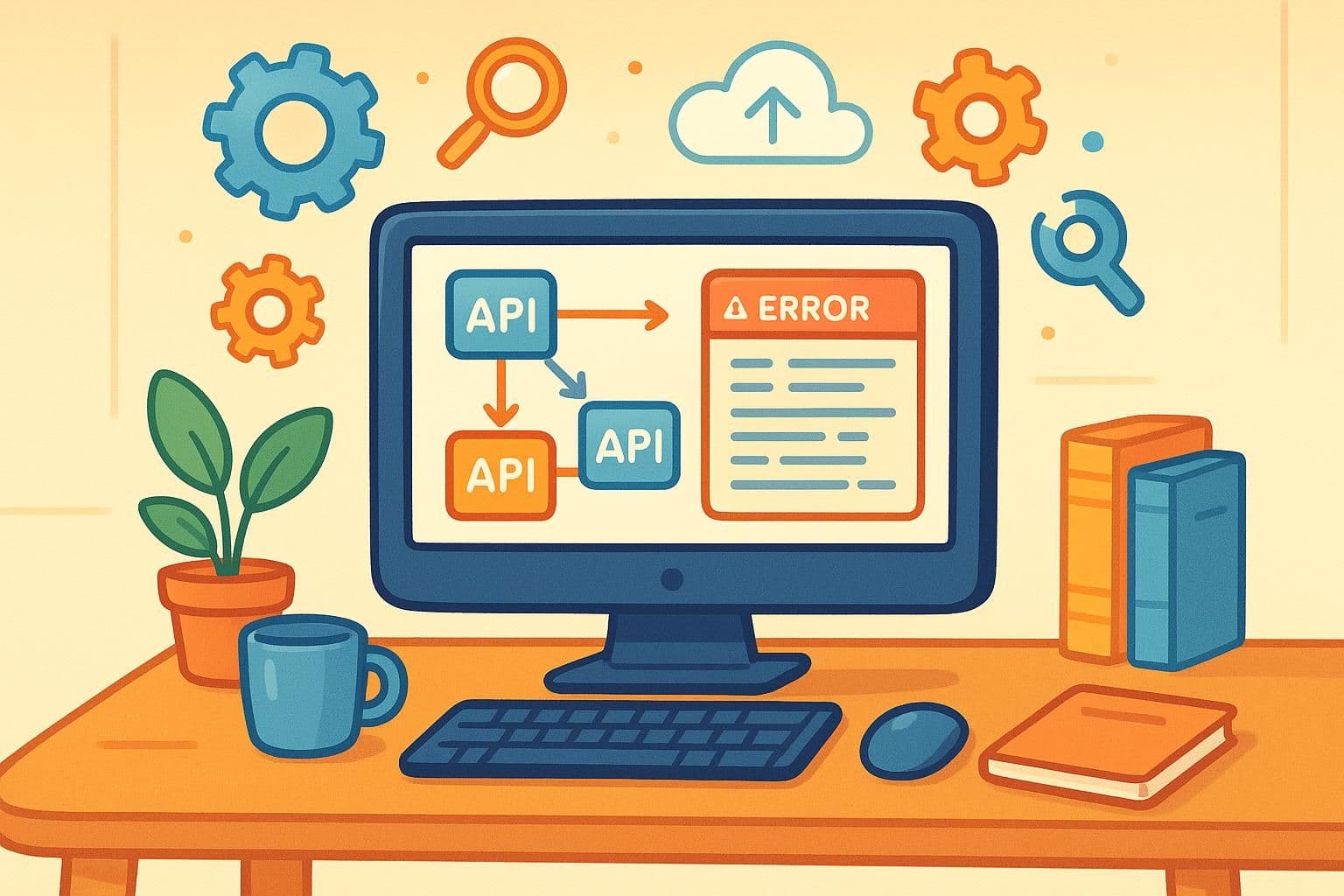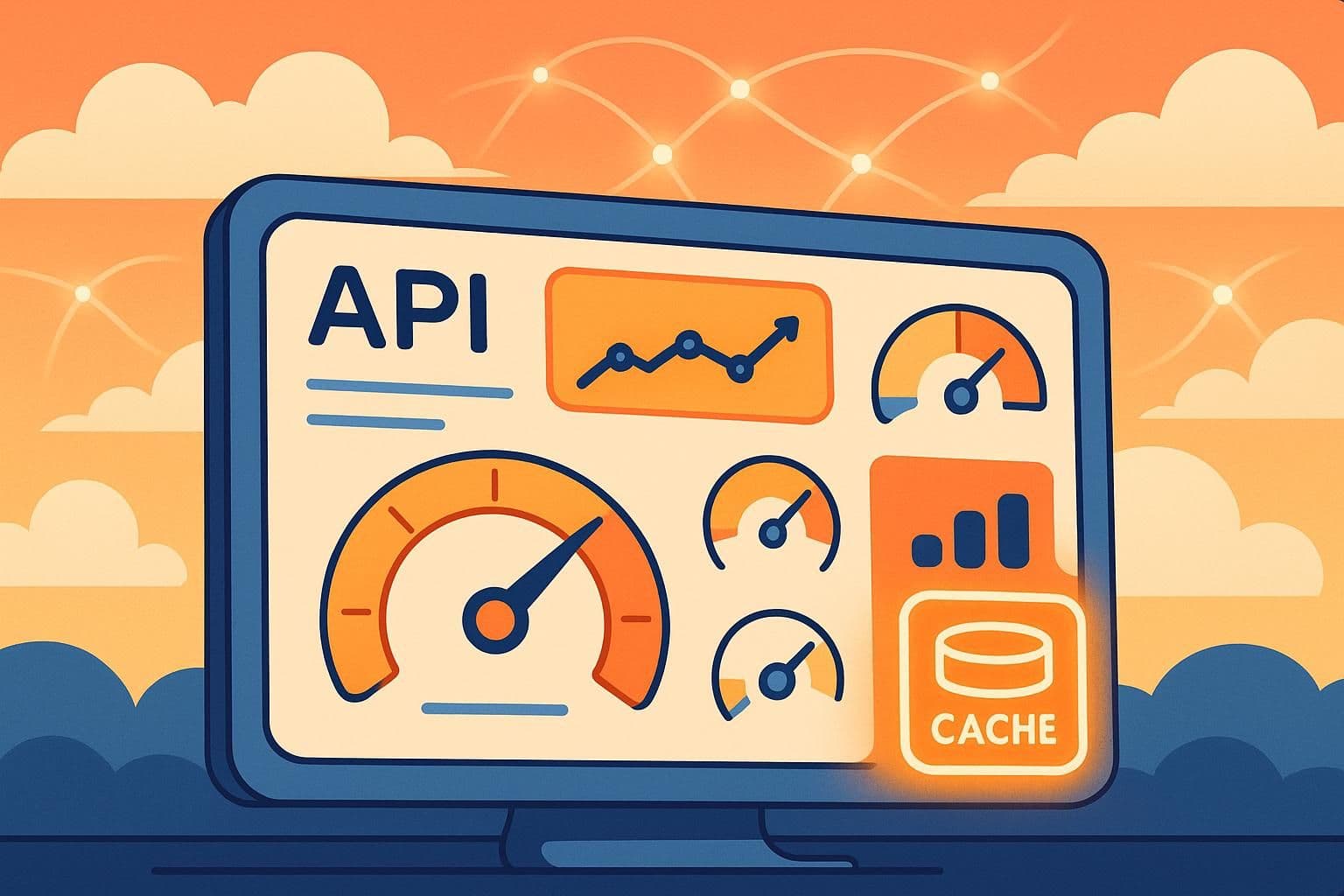Top 7 Integration Tools in 2024
What Are the Top XX Integration Tools for Business Success?

Hello everyone, Radzivon from Latenode here. Businesses are now working with huge amounts of info to make important decisions more frequently than ever before. And while it can help teams identify customer trends, as well as address problems in the workflow early, it has its unique challenges too. Most prominently, it is really time-consuming and challenging to work with large amounts of details, since the scope for error is so high. The solution to a problem like this is to use a data integration tool for your business that helps save time and streamline your workflow.
For example, sales reps frequently complain that they’re spending a significant portion of their time entering the same info across multiple systems and not actually taking sales calls or prospecting. But that’s not all. Ineffective info management also causes them to feel underprepared when they’re taking a sales call 42% of the time.
By using an efficient tool, they’ll only have to enter the information once, and it’ll be transferred automatically across all the apps in your workflow.
And it’s a great way to combat the issue of data silos, which happen when we have different systems that fail to communicate with each other as needed, leading to overall inefficiencies as well as a lack of cohesive strategy.
In this article, we’ll be looking at the top seven data integration tools that can help speed up and streamline operations so that team members can focus on high-ROI tasks while automating what’s repetitive.
Key Takeaways: Integration tools are crucial for managing large data volumes, enhancing decision-making, and workflow efficiency. Key benefits include unified data, real-time updates, strong governance, and compliance. When choosing, consider compatibility, scalability, ease-of-use, and cost. Latenode stands out with its no-code interface, AI support, scalability, and flexible pricing, effectively addressing integration needs for businesses of all sizes.
Integrate any app on Latenode – the best automation platform for you
What are the Benefits of Using Data Integration Solutions?
Updating info across multiple platforms is just one of the benefits of using a data integration platform. There are several other features that make them a necessity in the fast-moving modern workplace. Let's take a look at some of them below:
● Data Unification: One of the key benefits of data integration software is its unification capabilities. This allows disparate sources to be connected and processed for analysis and decision-making. So, employees from different departments can easily access any info they need within a few clicks. This streamlining also helps you respond swiftly to market changes, and maintain the overall integrity.
● Real-Time Updates: With a traditional ETL tool that processes information in batches, you'd have to wait for the right interval to view any information updated a minute ago. But, data integration platforms provide access to new data in real time.
● Data Quality and Governance: Complying with regulatory frameworks is vital when it comes to handling information. With the right tool, you won't have to worry about it since the platform is built with the regulations in mind. It can also be used to comply with internal policies, minimizing errors and inconsistencies. You will not have to worry about duplicate records or missing values. Neither will you have to worry about financial reporting errors. Depending on your business, you can use it to your benefit in different ways.
What You Should Look for in a Data Integration Tool
Identifying the right vendor to go with is difficult if you don't know what you're looking for. So, here are some key factors that should dictate which tool you decide to include into your workflow.
Compatibility and Connectivity
The first and most important question that needs to be answered is: “Does this tool fit into my specific day-to-day?”
While a lot of tools look good on paper, it's vital that they offer the level of detail, speed and connectivity that your process needs. Ideally, the tool you choose should have pre-built integrations that make connecting different apps a breeze, especially without coding.
Moreover, it should support your existing tech stack and not force you to overhaul it completely for compliance’s sake.
Scalability
As a smaller team, it can be easy to overlook a tool because of a lack of volume. But as the business grows, you might find that it's impossible to keep track of all info on an Excel sheet. And that's where you need a which can make the expansion seamless.
You need a proper cost-benefit analysis - and what you choose needs to be able to adapt to your growth and changing needs. Regardless of the size of the business operations, identifying future development plans is key when choosing a tool.
Ease of Installation and Support
You shouldn't have to suspend all your operations for two full days to install an integration tool. And if you're working without an in-house IT department, installation can be a nightmare, especially if you're not a developer yourself.
Therefore, you need to choose something that is easy to install, and preferably, requires minimal coding. But that's not all. You also need a reliable customer support team and community to ensure that you're well-equipped to solve any problems that come up later on.
That’s where companies like Latenode come in, offering you an easy-to-use interface and creating complex workflows that translate to easier business success. And with the tons of integration options available, you’re able to experiment more - all with a support team who is always there to answer your queries.
Cost
Lastly, it’s important that the tool you’re choosing fits your budget. There are a variety of payment plans available for many of these integration tools now. Some require a one-time payment, while others work on a subscription-based model.
You should also find out if there are any hidden charges for additional features which can shoot up your overall investment later on. This way, you’ll be able to identify which features are necessary for your workflow and which ones are going to be left unused even if they come with the tool.
Top 7 Data Integration Tools
With the information above in mind, here are some of your top choices:
1. Latenode
![]()
Latenode - the best data integration vendor, makes it easier than ever to build integrations through a no-code visual interface where you can intuitively see your connections. For custom workflow, all you need to do is instruct the AI assistant to do what you want, which builds the API integration within minutes.
Top Features:
- Intuitive and Non-Linear Visual Canvas
- Custom Code for Data Transformation
- Quick Integrations
- Multi-Trigger Scenarios
- Headless Browser Node
- Error Handling and Testing
- Parallel Development and Production Environments
- Custom Node Creation
- Cost-Effective Data Iteration
- In-Built AI Tools
Pricing:
Finally, Latenode has a cost-effective pricing model with options like lifetime deals or operation-based billing. Unlike some competitors, Latenode doesn't add charges for executing complex workflows, which makes it more budget-friendly. The solution comes with five pricing plans.
- The Free plan allows up to 12 computing hours and 1500 scenario executions with up to five active workflows.
- The Starter plan will cost you $17, granting 83 computing hours, 10.000 scenario executions, and 20 active workflows. It also gives you a three-day execution history and 100 requests for AI Code Copilot
- The Grow plan has 417 computing hours and 100.000 scenario executions for $97 monthly. It also gives you unlimited active workflows, 30 days execution history, and a basic teamwork feature
- The prime plan costs $297 and includes 1.5 million scenario executions, an enhanced teamwork feature, and more of everything.
- Dedicated success engineers, custom app integration, and security with private cloud are some of the Enterprise plan perks. You will have to ask for a quote for this tier.
Try to use Latenode - The best inategration platform for you
2. AWS App Sync
![]()
If you want the trust and reliability that comes with a big name brand, Amazon's App Sync provided by AWS is the solution for you. App Sync lets you use GraphQL APIs to build connections and integrate all your info.
Top Features:
- GraphQL API
- Real-time Support
- Offline Support
- Data Management
- Scalability
- AWS Integration
It also lets you integrate IoT tools (Internet of Things), chat and gaming applications, and more that require real-time info sharing and sync, which are vital. App Sync charges you as per usage but also comes with a free tier, albeit with limited usability.
Pricing:
Query and Data Modification Operations
- $4.00 per million Query and Data Modification Operations
Real-time Updates
- $2.00 per million Real-time Updates
- $0.08 per million minutes of connection to the AWS AppSync service
Merged APIs
There are no additional charges related to the source APIs used to create your Merged API.
Free Tier
- 250,000 query or data modification operations
- 250,000 real-time updates
- 600,000 connection-minutes
3. Celigo
![]()
Celigo offers a visual UI like Latenode alongside built-in integrations which significantly reduce the time required to build connections. However, it isn't up to the mark when it comes to EDI transactions, and also loses speed when it comes to handling large volumes of data.
Top Features
- Celigo has a visual model for data processing in Flow Builder, but you can go further with developer tools and customize solutions with JavaScript and stacks.
- Data loader supports hundreds of popular applications like Salesforce and other BI solutions.
- Celigo offers numerous pre-built integrations and connectors, API management, and advanced error management.
Pricing
As a result, it's best for small to medium sized businesses who don't have large demands yet. The pricing model is a monthly subscription starting from $600 plan to $2,500 per month which offers much more customisation. Celigo doesn't reveal its pricing tiers, and you can try the platform for free. However, you will need a quote from the vendor for every implementation.
4. Oracle Data Integrator
![]()
Oracle Data Integrator is frequently used to build integrations with other Oracle products. It is easy to learn and to implement, and also handles large volumes of information quite well.
Top Features:
- Unified ETL and ELT Platform
- Broad Connectivity
- Visual Development Environment
- Advanced Data Transformation
- High Performance and Scalability
- Metadata Management
- Enterprise-grade Security
- Seamless Oracle Integration
Pricing:
However, customization is limited because of the lack of documentation. And, it also loses speed in a variety of use cases which limits its efficiency. Licenses start from $198 and extend all the way to $30,000 based on the plan that suits you best.
| Integration Product | Comparison Price (/vCPU) | Unit Price | Unit |
|---|---|---|---|
| Oracle Integration Cloud Service - Standard | — | $0.6452 | 5K Messages per hour |
| Oracle Integration Cloud Service - Standard - BYOL | — | $0.3226 | 20K Messages per hour |
| Oracle Integration Cloud Service - Enterprise | — | $1.2903 | 5K Messages per hour |
| Oracle Integration Cloud Service - Enterprise - BYOL | — | $0.3226 | 20K Messages per hour |
5. SAP Data Services
![]()
SAP Data Services is best suited for organizations that require robust data integration from various sources. It also lets users extract and interpret unstructured data to facilitate advanced data processing.
Top Features of SAP Data Services
- Unified Data Integration
- Advanced Data Transformation
- Data Profiling and Quality
- Real-time and Batch Processing
- Scalability and Performance
- Metadata Management
- Embedded Analytics
Pricing:
But, while it is remarkable, the error messages are often misleading, making it difficult for developers to solve bottlenecks efficiently. The subscription is rather expensive, at $10,000 annually, billed once.
6. IBM DataStage
![]()
IBM Data supports ELT, ETL, parallel processing and load balancing for optimal functionality. It lets you easily refine structured as well as unstructured info into meaningful information which can drive decisions irrespective of format, volume or complexity.
Top Features of IBM DataStage
- Unified Data Integration
- Graphical Design Interface
- Extensive Connectivity
- Advanced Data Transformation
- Scalability and Performance
- Metadata Management
Pricing
Although there is a free trial option, pricing ranges from $725 all the way up to $16,000+, making it a suitable option for medium to large enterprises that need optimal support and volume management.
7**. Dell Boomi**
![]()
Boomi is a cloud based integration software that offers great customizability for apps and processes. It's particularly useful for organizations who rely on a complex structure consisting of apps hosted locally as well as on the cloud.
Top Features
- The solution employs machine learning to learn and improve from over 200 million crowdsourced integrations.
- The platform offers flexibility in terms of deployment so that clients can choose between cloud or on-premise implementations.
- The leading benefits are an easy-to-use drag-and-drop user interface and a robust library of pre-built integrations and assets.
- It has a quality reporting console and can create low-code applications through an API-focused platform.
However, the interface isn't as intuitive for new users, and the lack of sufficient documentation can be challenging for developers. The limitations on connectors also make it quite difficult to streamline connections.
Pricing
The pricing plan starts with Professional, and each next tier adds layers of functionalities. You can also choose Pro Plus, Enterprise, and Enterprise Plus. Pricing is revealed through a quote from Boomi.
What are the Right Integration Tools for Your Business?
It's important to go through the capabilities and unique features of each of the platforms to figure out which one is best suited for your workflow.
When choosing a platform, it's important to assess the capabilities and unique features of each one to find the best fit for your workflow. In addition to evaluating your current and future needs, you need to consider the total cost of ownership. Integration solutions can help you save money, as long as you use them correctly.
As a business grows, its needs change, so scalability and customization are crucial. Integrating tools like AWS App Sync can help with this. Moreover, integration is important not only for connecting systems, but also for ensuring information quality and compliance.
For small and medium-sized businesses, Celigo is a suitable option, while larger companies may benefit more from Amazon's flexible pricing model. Latenode offers an easy way to address these challenges, thanks to its simplicity of implementation, connectivity, and modification capabilities, as well as its advantageous pricing structure. This no-code and low-code solution helps democratize data integration and create complex workflows, which contributes to a more data-driven corporate culture.
Conclusion
When choosing a data integration tool, key factors to consider are compatibility, scalability, ease of use, and cost-effectiveness. While there are many robust options, Latenode stands out as an excellent choice for businesses of all sizes.
Latenode's intuitive, no-code visual interface allows users to easily build and customize integrations without technical expertise. Its AI-powered tools and cost-effective pricing model further set it apart. Latenode's ability to handle complex workflows, provide real-time updates, and ensure data quality and governance make it a versatile solution that can grow with your business.
Whether you're a small startup or a large enterprise, Latenode's flexible and user-friendly approach to data integration can help streamline operations, improve decision-making, and drive business success.
Integrate any app on Latenode – the best automation platform for you



